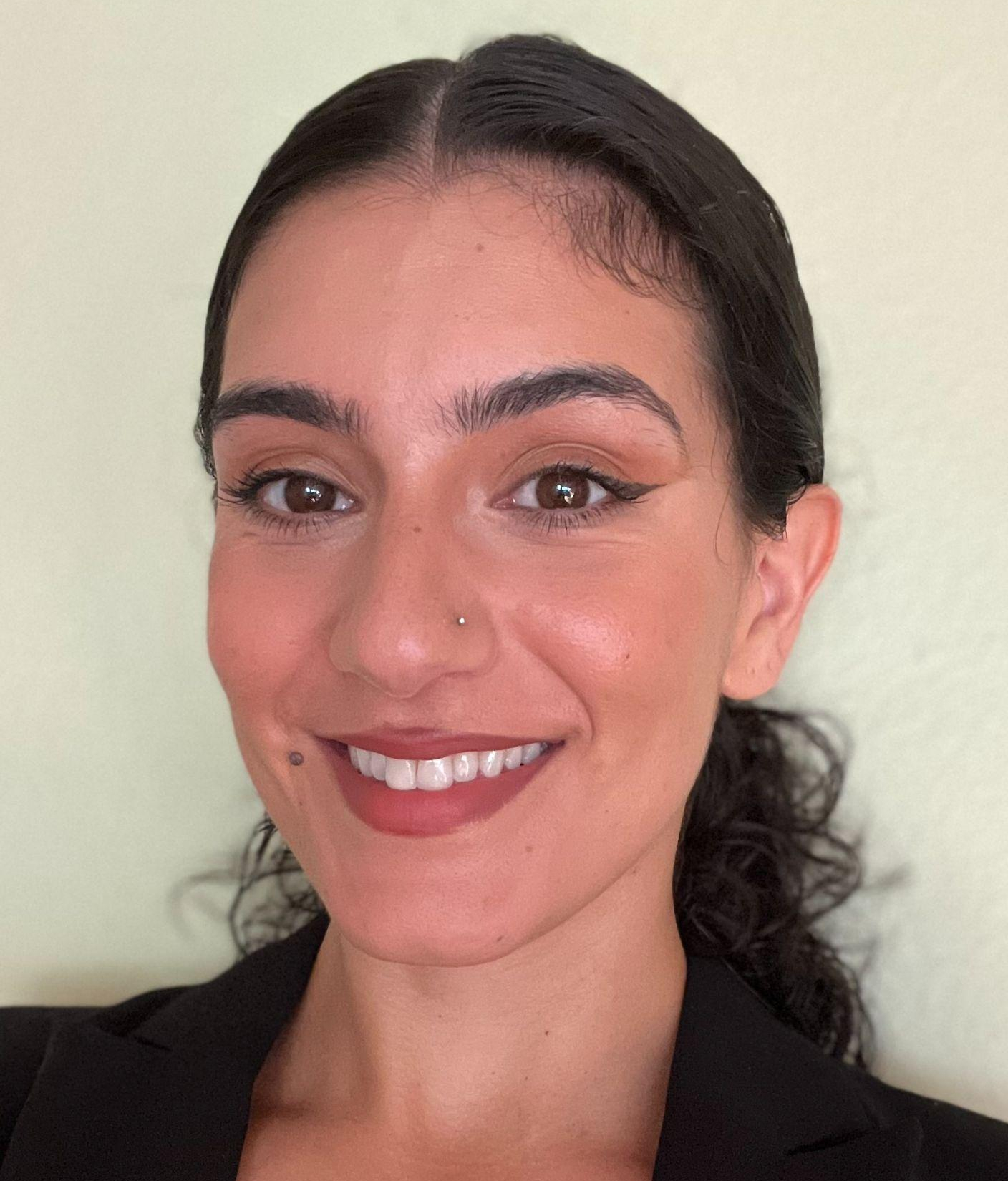Healthy boundaries in relationships are the foundation that allows safe connection, mutual respect, emotional well-being, and genuine emotional intimacy. In […]
Individual Therapy
Personalized support for your mental and emotional well-being.
Our individual therapy techniques focus on your unique needs and experiences. We use a client-centered approach that encourages you to take an active role in your therapy and take control of your own growth and progress. We focus on your strengths, helping you build on what you already do well. We believe that everyone has the ability to grow and change. Together, we will identify the areas you want to improve and create a plan to help you reach your goals.
We also believe it is important to create a safe and supportive space where you can feel comfortable sharing your thoughts and feelings without fear of judgment. As experts in individual therapy, our therapists are caring, understanding and focused on building strong, trusting relationships with our clients.
Start Your Healing Journey Now
Benefits of Individual Therapy
Stronger stress management skills
Individual therapy helps you learn how to handle stress better. You will discover new ways to stay calm and focused, even in tough situations. Our therapists work with you to build skills that can make daily stress easier to manage.
Improved self-awareness
Better relationship skills
Increased emotional regulation
Challenges We Help You Overcome
MB Care is here to support you through life’s toughest challenges. Our approach to individual therapy is designed to help individuals overcome mental health challenges, develop positive coping strategies, and achieve their full potential in all areas of life. We believe that by working collaboratively with our clients, we can help them live happier, more fulfilling lives and become their best selves.
Challenges We Address-
- Stress Management We help you learn to manage stress better so you can feel calm and in control every day.
- Anxiety Our therapy sessions guide you in understanding and reducing anxiety, which gives you more emotional security.
- Relationship Issues We help improve your relationships by teaching you how to communicate better and understand each other more.
- Emotional Struggles We work with you to understand and control your emotions, so you can feel balanced and more in control.
- Self-Doubt We support you in building your confidence and overcoming negative thoughts that hold you back.
- Trauma, healing and growth We support you in helping you process painful, difficult life experiences and help you engage meaningfully in your life.
Let our team of expert individual therapists in Mountain View and Palo Alto help you take the first step toward overcoming these challenges. Reach out to us at MB Care today!

Frequently Asked Questions
Individual therapy aims to identify and address the situations in one’s life that cause strong emotional responses – such as stress, anger, grief, and/or conflict. With this type of therapy, you can expect one-on-one interactions with your therapist in an environment that is comfortable and private.
Your treatment may be short-term, focusing on specific issues, or long-term if your problem is more complex in nature. The number of sessions, frequency of appointments, and length of each visit will depend on your unique needs, the recommendation of your therapist, and time and financial considerations.
Over the course of your sessions, you and your therapist will explore important matters that pertain to your emotional well-being. This may include issues such as the way you express your thoughts and emotions, certain behavioral patterns, problem-solving certain situations, and/or conflict resolution. You may then be given take-home work or skills to practice, depending on your therapist and the branch of psychiatry they practice.
Individual therapy has extensive mental, emotional, and behavioral benefits for those seeking additional psychiatric support. The benefits include:
- Bolstering your support network via one-on-one counseling sessions.
- Gaining more personal insight about yourself, including your needs.
- Learning how to handle strong and/or complicated emotions in a healthy way.
- Identifying the root cause of issues and addressing them in a safe space.
- Providing ample tools, resources, and coping strategies to safeguard your mental health.
- More support in managing your unique symptoms.
- Specialized support that accounts for your personal lifestyle and needs.
Individual therapy can help with a wide number of concerns, stresses, and issues that can affect anyone. The issues therapy can help you address will be specific to you and your circumstances, but some common presenting concerns we help within individual therapy include:
- Trauma and abuse
- Domestic violence
- Acculturation and identity issues
- Anxiety and depression
- Stress reduction and management
- Burnout
- Relationship issues
- School and job stressors
- Preventative mental health
Individual therapy is carried out in a safe, professional, and private environment that allows you to speak freely about the issues on your mind with a licensed mental health professional. There are many forms of therapy and its common for therapists to combine approaches from different branches of psychiatry to best suit the patient’s individual needs. Some forms of treatment work better than others when handling different issues which are why psychiatric professionals are trained to utilize a multitude of methods. This may include:
- Cognitive behavioral therapy (CBT)
- Dialectical behavior therapy (DBT)
- Interpersonal psychotherapy (IPT)
- Acceptance and commitment therapy (ACT)
- Psychodynamic therapy
While therapy may not cure a condition, it can help people identify what’s causing them distress and move them toward developing healthy coping skills. For the best results from individual therapy, it’s crucial to commit to the process and find the right therapist for you.
Research has shown that,on average, individuals benefit the most from 12-16 sessions spread over the course of 3-4 months. These sessions are typically between 45-60 minutes long, depending on your unique needs.
How long you’ll need individual therapy, and the number of sessions you’ll require, depends on a variety of factors such as the complexity and severity of your mental health condition, the disruptiveness of your symptoms in your day-to-day life, your commitment and openness to treatment, and your available time and finances.
Some issues can be addressed with short-term therapy that lasts anywhere from a few weeks to a month. More complex concerns often require long-term treatment, requiring 1+ years to tackle all the necessary components and underlying issues.
The successfulness of therapy is largely dependant on how committed you are to the process. The more you put into your sessions, and the more honest and vulnerable you’re willing to be, the more you’ll get in return. To go deeper into therapy and really maximize the best results, make sure to do the following:
- Find a therapist that you’re comfortable with and that makes you feel safe, understood, and acknowledged.
- Prioritize your needs and concerns by addressing key issues first.
- Give yourself unconditional permission to feel and express your feelings in every session.
- Commit to sharing your thoughts and concerns, even if you may have trouble putting words to your feelings.
- Understand that therapy is a journey, not just a destination – be realistic with your expectations and take things as slowly, or as quickly, as they come.
Specializations
Meet The Therapists

Shilpa Kapoor, Psy.D.
Owner and Founder
Licensed Psychologist

Hanna Chang, Ph.D.
Licensed Psychologist

Lyndsay Reese, Psy.D.
Licensed Psychologist

Jesse Schulte, Ph.D.
Licensed Psychologist

Emily Horowitz, Psy.D.
Licensed Psychologist

Elizabeth Newman, Psy.D.
Psychological Associate
Supervised by
Dr. Lyndsay Reese

Kyle Cacoyannis, Psy.D.
Licensed Clinical Psychologist

Angela Johnson, Ph.D.
Psychological Associate
Supervised by
Dr. Shilpa Kapoor

Shipra Maurya, Psy.D.
Psychological Associate
Supervised by
Dr. Shilpa Kapoor

Seja Saddy
Supervised by
Dr. Lyndsay Reese

Caroline Lee, AMFT
Supervised by
Sunita Roychoudhury, LMFT

Sherry Lin, AMFT
Supervised by
Sunita Roychoudhury, LMFT, LPCC

Paria Razavi, AMFT
Supervised by
Sunita Roychoudhury, LMFT, LPCC

Taylor Reinke, AMFT
Supervised by
Sunita Roychoudhury, LMFT, LPCC

Sanika Hage
Psychological Associate
Supervised by
Dr. Shilpa Kapoor

Marco Castro
Psychological Associate
Supervised by
Dr. Lyndsay Reese

Hannah Hulscher, MA
Executive Function Coach

Jas Chok
Practicum Student
Supervised by
Dr. Shilpa Kapoor

Selena Saad
Practicum Student
Supervised by
Dr. Shilpa Kapoor

Prabhpreet Kaur, MA
Psychological Associate
Supervised by
Dr. Hanna Chang

Jordan Fernandez, AMFT
Supervised by
Sunita Roychoudhury, LMFT, LPCC

Shilpa Kapoor, Psy.D.
Owner and Founder
Licensed Psychologist

Hanna Chang, Ph.D.
Licensed Psychologist

Lyndsay Reese, Psy.D.
Licensed Psychologist

Jesse Schulte, Ph.D.
Licensed Psychologist

Emily Horowitz, Psy.D.
Licensed Psychologist

Elizabeth Newman, Psy.D.
Psychological Associate
Supervised by
Dr. Lyndsay Reese

Kyle Cacoyannis, Psy.D.
Licensed Clinical Psychologist

Angela Johnson, Ph.D.
Psychological Associate
Supervised by
Dr. Shilpa Kapoor

Shipra Maurya, Psy.D.
Psychological Associate
Supervised by
Dr. Shilpa Kapoor

Seja Saddy
Supervised by
Dr. Lyndsay Reese

Caroline Lee, AMFT
Supervised by
Sunita Roychoudhury, LMFT

Sherry Lin, AMFT
Supervised by
Sunita Roychoudhury, LMFT, LPCC

Paria Razavi, AMFT
Supervised by
Sunita Roychoudhury, LMFT, LPCC

Sanika Hage
Psychological Associate
Supervised by
Dr. Shilpa Kapoor

Marco Castro
Psychological Associate
Supervised by
Dr. Lyndsay Reese

Hannah Hulscher, MA
Executive Function Coach

Madison Segura, BS
Office Manager

Jas Chok
Practicum Student
Supervised by
Dr. Shilpa Kapoor

Selena Saad
Practicum Student
Supervised by
Dr. Shilpa Kapoor
Our Blog
Social Media’s Impact on Relationships: Is It Hurting or Helping Love?
Social media’s impact on relationships depends on how it’s used. It can support love when it strengthens connection, shared meaning, […]
Why Integrative Couples Therapy Online Works for You
Integrative couples therapy online works because it helps you change the real patterns that keep you stuck, while you’re sitting […]



















